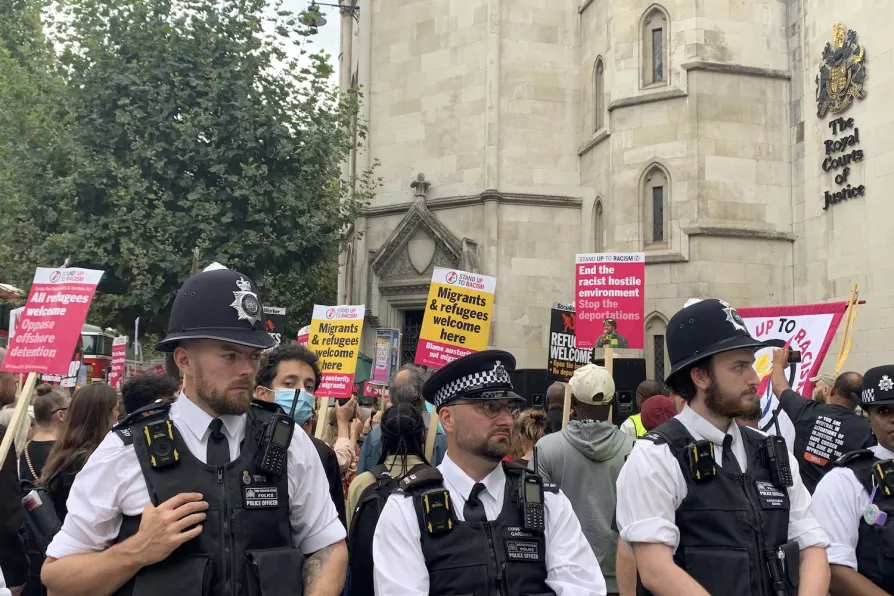Home Office urges High Court to ignore UN refugee agency's warnings on Rwanda deal

 Police officers look on as demonstrators outside the Royal Courts of Justice, central London, protest against the Government's plan to send some asylum seekers to Rwanda, while a High Court hearing over the policy is ongoing. Picture date: Monday September 5, 2022.
Police officers look on as demonstrators outside the Royal Courts of Justice, central London, protest against the Government's plan to send some asylum seekers to Rwanda, while a High Court hearing over the policy is ongoing. Picture date: Monday September 5, 2022.
THE High Court is not required to accept the stark warnings made by the United Nations refugee agency over the safety of the Rwanda deal, government lawyers have claimed.
On the fourth day of the legal challenge against the plans, lawyers for the Home Office argued that the court was entitled to make its own assessment of the scheme.
UNHCR — the UN refugee agency — previously told the court that Rwanda could not be relied on to comply with the Refugee Convention.
Similar stories

Britain’s proud asylum history, from sheltering the Kindertransport escaping Hitler to Basque children fleeing fascist Spain, required tireless campaigning against persistent opposition — and it’s up to all of us to do our part today, writes SABINA PRICE

MPs condemn Home Office after it wasted £15.4m on derelict prison to house asylum seekers

Government urged to put ‘clear distance between it and the cruel, wasteful camps policy held by the previous one’











